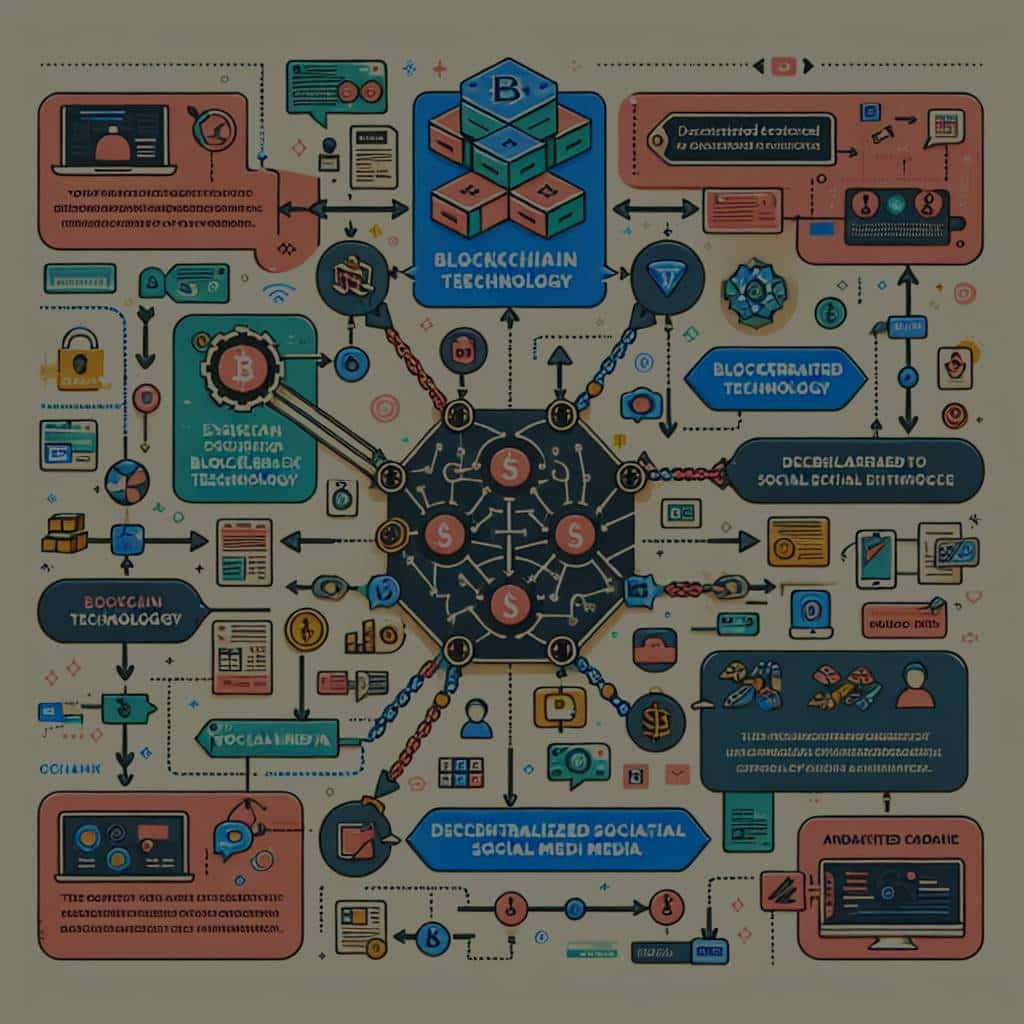How Is Blockchain Contributing to the Creation of Decentralized Social Media Platforms?

Social media has emerged as an essential part of our daily lives, providing a platform for interaction, sharing ideas, and establishing connections. However, the control and misuse of user data by centralized platforms have raised numerous concerns about privacy and censorship. Amidst these growing issues, a revolutionary technology known as blockchain has presented solutions that are set to reshape the social media landscape. Blockchain’s potential for decentralization is now being harnessed to create new types of social media platforms, offering users more control over their online presence and data.
The Drawbacks of Centralized Social Media Networks
Traditional social media platforms like Facebook, Twitter, and Instagram are based on a centralized model. This model allows these platforms to control all the data that the users generate, leading to a range of privacy concerns.
In parallel : How can chatbots help with waste and recycling management ?
In a centralized social media network, the platform controls everything: the user data, the rules of the platform, and even the content that gets seen or hidden. They also control the profit from the content shared on their platforms, with little to no share given to the content creators.
On top of these issues, centralized social media networks have also been under fire for their practices of censorship. The platforms have the power to limit or suppress content that they deem inappropriate or politically disadvantageous, thereby curtailing freedom of speech and expression.
Also to discover : What Innovations in Soil Health Monitoring Are Supporting Sustainable Farming?
The Advent of Decentralized Social Media Platforms
In response to the issues plaguing centralized social networks, developers have started to create social platforms that employ blockchain, the technology underpinning cryptocurrencies like Bitcoin. Blockchain’s intrinsic characteristics of decentralization, transparency, and security make it a perfect fit for creating social media networks where users retain control over their data and content.
Decentralized social media platforms based on blockchain technology aim to provide users with the ability to control their digital identities. Instead of the data being stored on a centralized server, it is stored on a decentralized network, making it nearly impossible for individuals or entities to control or misuse the data.
These platforms also aim to provide a censorship-resistant environment. As there is no central authority that can control or censor content, users have the freedom to express themselves without fear of being silenced.
The Role of Blockchain in Decentralized Social Media
Blockchain technology is instrumental in creating a decentralized social media network. It provides the fundamental aspects that make these networks distinct from their centralized counterparts, namely user control, data privacy, and resistance to censorship.
Blockchain’s decentralized nature ensures that data isn’t stored in a central location. Instead, the data is stored on a network of computers, or nodes, each holding a copy of the entire blockchain. This feature eliminates the need for a central authority and provides users with the ability to control their own data.
Moreover, the immutable and transparent nature of blockchain ensures that once data is recorded, it cannot be altered or deleted. This characteristic provides a robust defense against any attempts at censorship. Furthermore, blockchain’s encryption capabilities offer enhanced privacy and security for users’ data.
How Decentralized Social Media Platforms Are Shaping the Future
With the rise of decentralized social media platforms, the power dynamics on the internet are shifting. These platforms are not just challenging the status quo, but are also shaping the future of online interaction.
Decentralized platforms are giving users the control over their online presence that they’ve long been clamoring for. By leveraging blockchain technology, these platforms are ensuring that users have complete ownership of their data. They’re also creating a platform where users, not algorithms, decide what content gets seen.
Moreover, the blockchain-based platforms are fostering an environment where content creators are rewarded for their efforts. Unlike traditional social media networks, these platforms are establishing models where profits generated from content are shared with the creators.
Finally, by providing a censorship-resistant environment, decentralized social media platforms are supporting the fundamental right to freedom of speech. They are creating networks where diverse viewpoints can coexist, fostering a richer, more inclusive online dialogue.
In conclusion, the adoption of blockchain technology in the social media sphere is not just a trend, but a movement towards a more equitable and inclusive digital future. The creation of decentralized social media platforms is a testament to the transformative power of blockchain. As these platforms continue to mature and gain wider adoption, they will increasingly challenge the dominance of traditional social media networks, paving the way for a new era of online interaction.
Blockchain-Based Social Media Models
Blockchain technology’s use in social media is not limited to a single application or model. Various decentralized platforms have been developed, each with its unique approach in leveraging blockchain’s potential. Their models mainly revolve around user control over personal data, content moderation, and content monetization.
In the realm of personal data control, blockchain-based social networks such as Sapien and Indorse allow users to have absolute control over their data. Unlike centralized platforms, users can decide who can access their information and can even monetize it if they choose to. This contrasts greatly with traditional social media platforms where users have little or no control over how their data is used or who has access to it.
For content moderation, decentralized networks like Steemit and Dtube are leading examples. On these platforms, the community itself moderates the content through a democratic voting system, eliminating the need for a central authority. This model promotes freedom of speech and averts unilateral content censorship common in centralized platforms.
And when it comes to content monetization, blockchain-based social networking platforms like Voice and LBRY go a step further. They employ smart contracts to ensure content creators are adequately rewarded for their work. The use of smart contracts automates the distribution of rewards based on predefined rules, providing a transparent, fair, and tamper-proof system of revenue distribution.
Future Challenges and Potential Solutions
While blockchain technology provides promising solutions, the journey towards fully decentralized social media is not without challenges. These include scalability issues, regulatory concerns, user adoption, and digital identity verification.
With scalability issues, existing blockchain networks can process only a limited number of transactions per second, far less than traditional social media networks. However, developers are exploring solutions like sharding and off-chain transactions to increase the blockchain’s transaction capacity.
Regulatory concerns arise as blockchain’s decentralized nature makes it difficult for governments to exercise control. However, self-regulatory organizations and international cooperation can potentially provide a solution.
As far as user adoption is concerned, the unfamiliarity with blockchain technology could be a significant barrier. Educational initiatives and user-friendly interfaces can help overcome this hurdle.
Finally, with regards to digital identity verification, while blockchain can secure user data, verifying the authenticity of user profiles remains a challenge. Still, solutions such as decentralized identifiers (DIDs) and verifiable credentials are being explored to address this issue.
Conclusion
The integration of blockchain technology into social media represents a paradigm shift towards a more transparent, user-centric digital space. Decentralized social networks, powered by blockchain, are reshaping the social media landscape, placing users at the heart of the ecosystem, and promoting a more equitable distribution of value.
While the road to fully decentralized social media networks may be fraught with challenges, the potential benefits are too immense to ignore. As the technology matures and solutions to existing challenges are found, it won’t be long before decentralized platforms become the new norm, redefining our online social interactions.
Therefore, the evolution of social media is a testament to the transformative power of blockchain. As these platforms continue to develop and gain wider acceptance, they are bound to challenge the dominance of traditional social networks, heralding a new era of online interaction.
